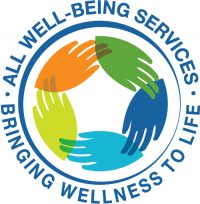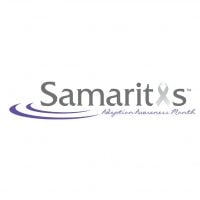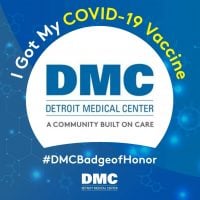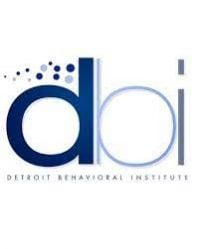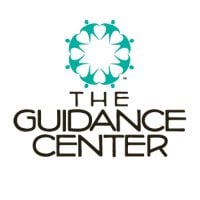Alcoholics For Christ - Bethel Church of the Apostolic
Drug Rehab Center in Detroit, Michigan
Alcoholics For Christ - Bethel Church of the Apostolic in Detroit, Michigan is a faith-based treatment center that offers a holistic approach to addiction recovery through prayer, spiritual guidance, evidence-based therapeutic services, and personalized treatment plans.
About Alcoholics For Christ - Bethel Church of the Apostolic in Michigan
Alcoholics For Christ - Bethel Church of the Apostolic in Detroit, Michigan is a faith-based treatment center that offers a holistic approach to recovery from addiction and substance abuse. It specializes in treating individuals who struggle with co-occurring disorders and provides an atmosphere of healing and support. The experienced staff at Alcoholics For Christ - Bethel Church of the Apostolic are committed to helping individuals overcome addiction through prayer, spiritual guidance, and evidence-based therapeutic services.
At Alcoholics For Christ - Bethel Church of the Apostolic, individuals can take advantage of a range of services to help them overcome addiction and reach a successful recovery. Treatment plans are individualized and may include group and individual counseling, 12-step programs, relapse prevention and aftercare planning. The center also offers sober living options, spiritual exploration, meditation, family counseling, and other services designed to support positive life changes.
Alcoholics For Christ – Bethel Church of the Apostolic is a licensed, accredited facility that has been recognized for its outstanding services in the community. The center has received numerous awards from the Detroit Department of Health and Wellness Promotion, and has been featured in national magazines for its innovative approaches to addiction treatment. It also provides accessible services, such as low-cost treatment, financial assistance, and weekly outreach events in Detroit.
Genders
Ages
Modality
Additional
Conditions and Issues Treated
A combination of treatments is often needed to treat drug abuse. Some addictions can be treated with counseling and support groups. In other cases, drug abuse can lead to a medical problem and require medical treatment. Treatment for drug addiction typically combines counseling and psychotherapy with medication and behavioral therapies.
A combination of treatments is often needed to treat drug abuse issues effectively. In the case of drug abuse, there is no easy answer or one-size-fits-all cure.
Opioid addiction has become a significant health problem in the United States. In 2015, there were 91 opioid overdose-related deaths per day, with a substantial increase in mortality rate in 2014.
When opioid addiction has reached a point where a person’s life becomes unmanageable, treatment options are available to help them get sober. Treatment that includes medical care with medications and counseling can help a user transition into sobriety.
Levels of Care Offered
This center offers a variety of custom treatment tailored to individual recovery. Currently available are Drug Rehab, Outpatient, Residential, with additional therapies available as listed below.
Outpatient treatment is often used for drug addicts in drug rehab. Outpatient treatment consists of counseling and therapy sessions. This form of treatment is also called ‘day-treatment’. The outpatient treatment process begins with the addict’s initial detox period, lasting about ten days.
Outpatient treatment is used for those who are at moderate risk for ‘slipping back’ into the addiction, for those who:
- Are not currently experiencing any side effects from withdrawal and can handle social pressure
- Can handle stressors that might trigger relapse
- Have a stable living environment or have moved out of their previous environment, which was not conducive to being sober
- Have a support system that allows them to go to a facility a few times a week while still keeping their current responsibilities
- Have no legal obligations, being either on parole or probation, that require them to seek treatment at a mandatory facility
- Are not currently experiencing any side effects from withdrawal and can handle social pressure
- Have a stable living environment or have moved out of their previous environment, which was not conducive to being sober
Residential treatment programs are those that offer housing and meals in addition to substance abuse treatment. Rehab facilities that offer residential treatment allow patients to focus solely on recovery, in an environment totally separate from their lives. Some rehab centers specialize in short-term residential treatment (a few days to a week or two), while others solely provide treatment on a long-term basis (several weeks to months). Some offer both, and tailor treatment to the patient’s individual requirements.
Therapies & Programs
Because no single treatment is effective for all addicts, the goal of treatment and therapy should be to figure out what works best for each individual. Tolerance and withdrawal levels differ from person to person, affecting the treatment intensity required. Addiction treatment should aim to help addicts develop healthy coping mechanisms for dealing with their addiction and its underlying causes.
Family therapy is beneficial for people who are in addiction treatment services because it offers addicts the opportunity to work with their family members to better understand what led them to make choices that contributed to their addiction.
This type of therapy helps family members reach a deeper understanding of how they can best support their loved one during recovery. It also helps the addict better understand their own motivations and triggers that led them to turn to substance abuse.
Family therapy can help addicts in the following ways:
- Assists family members in processing difficult feelings so they don’t blame or resent recovering addicts
- Assists family members in understanding how addiction has impacted the addict and everyone who is involved with them
- Allows the addict to take responsibility for their actions, while encouraging improved communication skills
- Helps family members understand how to best support an individual in recovery so addicts don’t relapse again.
Group therapy can help build a stronger support system and give addicts in Detroit, MI insight into their addiction that they gain through shared conversations. Group therapy occurs in a controlled group environment, exclusive of one on one meetings. This makes it safer for patients to feel comfortable sharing the struggles they’re going through and gaining perspective.
Alcoholics For Christ Associated Centers
Discover treatment facilities under the same provider.
- Alcoholics For Christ - Mel Trotter Ministries in Grand Rapids, MI
- Alcoholics For Christ - Lakeridge Ministries in Detroit, MI
- Alcoholics For Christ - Troy Assembly of God in Troy, MI
- Alcoholics For Christ - Christ the King Lutheran Church in Southgate, MI
- Alcoholics For Christ - Living Word Church in Midland, MI
Learn More About Alcoholics For Christ Centers
Additional Details
Specifics, location, and helpful extra information.
Detroit, Michigan 48207 Phone Number(313) 615-1561 Meta DetailsUpdated November 25, 2023
Staff Verified
Alcoholics For Christ - Bethel Church of the Apostolic Patient Reviews
There are no reviews yet. Be the first one to write one.
Detroit, Michigan Addiction Information
Michigan has the second-highest rate of drug and alcohol abuse in the nation. Heroin is linked to more than 50% of the state's hepatitis C cases. Marijuana is the drug most often associated with crimes in Michigan, followed by methamphetamines. Opioids alone are responsible for almost 20% of all drug overdose deaths in Michigan.
Over 1,000 drug-related overdose deaths occurred in Detroit, Michigan, in 2017 alone. Opioids (42%) and benzodiazepines (22%) are the most common drugs involved in overdose deaths. Drug overdoses killed more people in 2016 than homicides. In Detroit, Michigan, there are a variety of drug rehab centers to choose from. The most important thing is to find a facility that will best meet the needs of the individual.
Treatment in Nearby Cities
- Coldwater, MI (105.3 mi.)
- Romulus, MI (21.2 mi.)
- Ontonagon, MI (439.3 mi.)
- West Branch, MI (145.9 mi.)
- Three Oaks, MI (188.0 mi.)
Centers near Alcoholics For Christ - Bethel Church of the Apostolic
The facility name, logo and brand are the property and registered trademarks of Alcoholics For Christ - Bethel Church of the Apostolic, and are being used for identification and informational purposes only. Use of these names, logos and brands shall not imply endorsement. RehabNow.org is not affiliated with or sponsored by Alcoholics For Christ - Bethel Church of the Apostolic.




